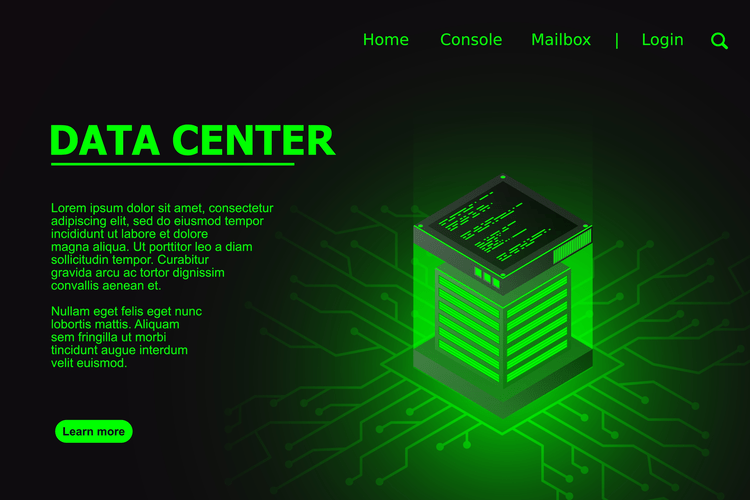Starbucks leverages AI technologies to optimize both its customer-facing interactions and staff operations. A prime example lies within the implementation of predictive analytics and demand forecasting algorithms to revolutionize stock management, food provide chain operations, finally resulting in improved service quality. By analyzing gross sales information, seasonal fluctuations, and different elements, Starbucks ensures precise demand prediction, guaranteeing that its food products are persistently stocked with the right assortment at optimal occasions. This strategic approach not only reduces food waste but also bolsters operational effectivity.
It ensures improved operational practices, when it comes to service quality and food transportation. In the realm of meals and beverage procurement, AI-powered know-how takes on several forms. One example is machine learning algorithms that may sift through large databases to determine suppliers based on specific criteria similar to value, quality standards, and supply reliability. This automated course of eliminates hours of handbook research for procurement professionals. Machine vision technology also plays an important function on this course of, enabling AI systems to detect food merchandise contamination and safety hazards with precision and accuracy. By repeatedly analyzing visible knowledge from cameras installed all through the restaurant, these methods can determine potential dangers and alert food trade employees in real-time.
- By analyzing huge quantities of data, similar to market trends, pricing info, and provider performance metrics, AI algorithms can determine patterns and make predictions.
- For a giant number of meals and beverage manufacturers, the quest for first-party information and the pivot to data-driven decision-making were key enterprise imperatives lengthy earlier than the pandemic hit.
- “Guided by reinforcement studying algorithms, synthetic intelligence optimizes harvesting methods in real-time, factoring in variables similar to crop density, ripeness, and area conditions.
- Now think about having the ability to call up all formulation immediately which have some kind of corn starch in them, from among tens of thousands of formulations, saving effort and time.
Food ‘waste’ refers to food that’s match for consumption but then discarded on the retail or consumption phases. For instance, supermarkets can use AI-powered tools to scan and establish edibility of produce to avoid dumping it away. Businesses within the food business are extremely cautious in regards to the quality of meals products. Campbell Soup Company, for instance, is benefiting from AI technology examples of nlp to assist with software program product improvement. To understand what the purchasers want, the corporate is using AI-generated insights on behavioral patterns of consumers. Wingstop, a global chain of eating places in America, is reportedly utilizing artificial intelligence to automatically answer orders received by way of telephone calls.
What Is Food And Beverage Synthetic Intelligence Consulting?
The intricate nature of meals production, food processing, and supply chains entails multifaceted and dynamic techniques replete with numerous variables and factors. Developing AI and ML models able to effectively navigating this complexity and variability represents a significant challenge. Moreover, the absence of standardized knowledge formats, protocols, and practices across various segments of the food business poses obstacles to model improvement and deployment.
It reduces human errors and boosts quality standards, thereby improving overall high quality of food merchandise. Most importantly, AI can discern potential security hazards and repair them before the contaminations cause any injury to the standard of meals merchandise. Addressing bias in NLP models is a crucial recipe for success within the meals and beverage industry. By combining diverse and consultant knowledge, bias detection methods, and interdisciplinary collaboration, we are able to cook dinner up extra moral, fair, and inclusive NLP methods that delight users’ palates and respect diverse culinary traditions. It’s time to embrace the accountability of serving up equitable AI-powered solutions, so everybody can enjoy a seat on the table of innovation.
While conventional market research could be tailor-made to particular questions or topics, it could lack the flexibleness to adapt rapidly to changing market situations. Food and Beverage Artificial Intelligence Consulting is highly customizable and adaptable, able to pivot quickly as new information becomes out there or as business needs change. Another thrilling growth is the use of AI-powered chatbots for supplier communication. These chatbots can deal with routine inquiries, place orders, and even negotiate pricing with suppliers. To reach these people, you can launch a targeted social media marketing campaign that highlights your business’s quick, handy, and reasonably priced meals delivery that’s good for a weeknight dinner with the household. This sort of pattern forecasting enables you to foresee any potential points together with your supply chain and react swiftly.
Kitchen Management And Food High Quality Control
It also empowers food producers to handle climate-related risks and improve sustainable agricultural practices. Additionally, AI and ML promise personalized vitamin recommendations, good kitchen appliances, and cooking assistance platforms for customers and restaurants, promoting more healthy lifestyles. Effective inventory administration is essential for maintaining operational effectivity and maximizing profitability within the food trade. With advanced AI technologies, restaurants now have the instruments to beat these challenges.
From automation to providing data-driven insights, the advantages provided by futuristic AI applied sciences accentuate their instrumental position within the meals trade. One of the commonest makes use of of NLP in the meals business is menu evaluation and generation. AI can even help in quality control by utilizing image recognition expertise to detect defects or inconsistencies in products. AI-powered know-how has revolutionized various industries, and the food and beverage procurement sector is not any exception.

According to the report, Yummy, an Estonian startup company, built an AI that may create meals recipes based on customer’s desire. Compare that to a publish discussing “vegan leather handbags”; to a person, these two posts could sound simply identifiable as distinct, however NLP is what allows computers to undertake that degree of human understanding and surface probably the most relevant insights. In this text, we are going to explore the concept of Natural Language Processing for Food and its potential applications. When it involves harnessing knowledge to drive insights and strengthen performance, the chances are endless.
Reducing Waste
It is definitely an automatic system of deciphering visible data, instructing computer systems to understand the information on a pixel-by-pixel basis. So, it’s clear that NLP isn’t just limited to language processing however has great potential in numerous industries, together with the food trade. In today’s digital age, businesses want to monitor their on-line presence and reputation. NLP can help by analyzing sentiment in online evaluations and social media posts related to a brand, permitting businesses to deal with any points or adverse feedback.

One means AI-powered technology is utilized in food and beverage procurement is thru knowledge analysis. By analyzing huge amounts of data, such as market tendencies, pricing info, and supplier efficiency metrics, AI algorithms can establish patterns and make predictions. This enables companies to make knowledgeable selections relating to which suppliers to choose, what portions of ingredients to order, and when to position orders.
It offers a plethora of alternatives for eating places as nicely, helping to streamline operations, improve buyer experiences, and maximize profitability. Let’s delve into how AI and ML options are transforming totally different elements of restaurant businesses and what instruments can help with that. At the retail stage, food loss due to spoilage can be curbed by using AI to track expiry dates and monitor the shelf-life of products. AI can optimize stock management, which fits a long way toward eliminating waste since the shops will higher meet shopper demand, thereby lowering excess stock and in turn, food waste.
This pricing approach ensures that restaurants can maximize revenue whereas maintaining aggressive yet affordable meals costs, leading to elevated profitability”. The technology is solving intricate issues within the food processing and improving enterprise methods to foretell markets for products, reduce waste, and improve income by managing costs. AI drives priceless contributions to food companies, including top-notch manufacturers and entrepreneurial visionaries. For instance, Nestlé and Nuritas use AI to determine proteins that allow production of wholesome meals. Kraft Heinz is using AI to optimize and improve its relationships with stores, gross sales reps, and consumers.
With AI and ML capabilities, kitchen appliances are becoming smarter, offering personalized cooking experiences and optimizing useful resource utilization. AI’s powerful search capabilities past what users input—which usually has to be precise wording, or precise ingredient numbers—can catch formulations with related elements that might in any other case not have been flagged. Now imagine having the flexibility to name up all formulas in an instant which have some sort of corn starch in them, from among tens of hundreds of formulations, saving effort and time. This suggestions is never shared publicly, we’ll use it to indicate higher contributions to everyone. Mark contributions as unhelpful if you discover them irrelevant or not priceless to the article.

From customized vitamin recommendations to optimizing household chores and managing daily schedules, ML/AI technologies offer a huge selection of functions that cater to individual needs and preferences. From enhancing supply chain and meals sorting to maintaining food safety compliance, high quality control, cleanliness, and meals delivery efficiency, benefits rendered by AI-powered options are many within the food industry. Using AI-powered expertise in food and beverage procurement brings numerous advantages to companies in the trade.
They can detect and flag discrepancies or potential hazards, contributing to enhanced high quality assurance all through provide chains. At its core, Food and Beverage Artificial Intelligence Consulting entails analyzing a company’s particular needs and challenges in the meals sector after which devising AI-driven methods to deal with them. This can range from implementing AI algorithms for better stock management to using machine studying fashions for predicting shopper trends to integrating AI in food safety and high quality control processes. Also, via the appliance of predictive analytics, together https://www.globalcloudteam.com/ with autoregressive integrated shifting common and lengthy short-term reminiscence models, artificial intelligence adapts manufacturing plans in real-time to accommodate consumer demand fluctuations. Employing advanced optimization algorithms like genetic algorithms and gradient descent, the specialists in meals production optimize inventory ranges and scale back waste, guaranteeing environment friendly resource allocation and maximizing profitability. Traditional market analysis often depends on surveys, focus teams, and historical sales data to gather insights.


